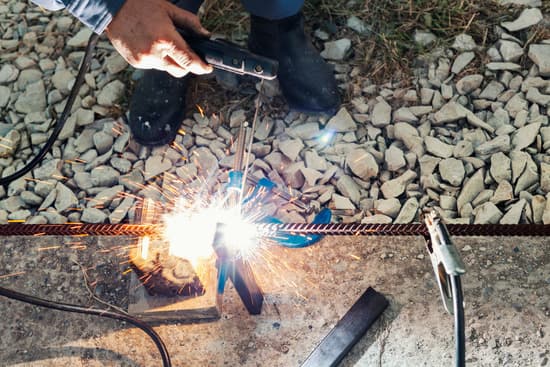Are you wondering, “Can I write off my home improvements?” If so, you’re not alone. Many homeowners are curious about the potential tax benefits of making improvements to their property. Understanding how home improvements can impact your taxes is crucial for maximizing savings and avoiding costly mistakes.
When it comes to claiming tax deductions for home improvements, there are important considerations to keep in mind. From determining what qualifies as a tax-deductible improvement to understanding the documentation and proof required, navigating this aspect of homeownership requires careful attention to detail.
In this article, we’ll explore the ins and outs of writing off home improvements, including what qualifies for deductions, the potential tax benefits, and how to claim these deductions properly. We’ll also cover common mistakes to avoid and alternative ways to save on home improvement expenses. Additionally, we’ll emphasize the importance of seeking guidance from a tax professional regarding specific advice and guidance on home improvement tax deductions.
What Qualifies as a Tax-Deductible Home Improvement?
Eligible Home Improvements
Home improvements that qualify as tax-deductible expenses are those that add value to your property and prolong its useful life. This includes adding a new room, renovating a bathroom or kitchen, installing a new HVAC system, replacing the roof, adding a deck or porch, and making accessibility modifications for disabled individuals. However, routine maintenance and repairs do not usually qualify for tax deductions.
Energy-Efficient Upgrades
Certain energy-efficient upgrades may also qualify for tax deductions or credits. These include installing solar panels, water heaters, wind turbines, geothermal heat pumps, and energy-efficient windows and doors. The Residential Energy Efficiency Property Credit allows homeowners to claim 26% of the cost of these improvements in 2020.
Access Upgrades
Modifications made to the home to accommodate individuals with disabilities may also be eligible for tax deductions. This can include installing wheelchair ramps, widening doorways, lowering cabinets and countertops, adding handrails or grab bars, and modifying bathrooms for accessibility. However, it’s important to verify with a tax professional which specific upgrades qualify for deductions based on the current tax laws.
Potential Tax Benefits of Home Improvements
When considering making home improvements, it’s important to also understand the potential tax benefits that may come with it. While not all home improvements are tax-deductible, there are certain ones that can provide some tax relief for homeowners.
Here are some potential tax benefits of home improvements:
1. Energy-Efficient Upgrades: Making energy-efficient upgrades to your home, such as installing solar panels or a geothermal heat pump, may qualify for tax credits under the Residential Energy Efficient Property Credit.
2. Medical Necessity: Certain home improvements made for medical necessity, such as wheelchair ramps or modified bathrooms for medical reasons, may be eligible for a deduction if they exceed a certain percentage of your adjusted gross income.
3. Home Office Expenses: If you use part of your home regularly and exclusively for business purposes, you may be able to deduct expenses related to that portion of your home, such as renovations or repairs.
It’s important to note that tax laws and regulations surrounding these deductions can be complex and subject to change. It’s recommended to consult with a tax professional to determine the specific tax benefits available for your home improvements and how to properly claim them on your taxes.
How to Claim Home Improvement Tax Deductions
When it comes to claiming tax deductions for home improvements, it’s important to follow the proper procedures and guidelines set by the Internal Revenue Service (IRS). Here are the steps to take when claiming home improvement tax deductions:
- Keep detailed records: It’s crucial to keep all receipts, invoices, and contracts related to the home improvement projects. This documentation will serve as proof of the expenses incurred.
- Understand eligible expenses: Make sure you understand which home improvement expenses qualify for tax deductions. Typically, only improvements that add value to your home or make it more energy-efficient are eligible.
- Use the correct tax form: When filing your taxes, use the appropriate tax form for claiming home improvement deductions. This may include Form 1040 and Schedule A for itemized deductions.
By following these steps, homeowners can ensure that they are properly claiming tax deductions for their eligible home improvement expenses. This can help maximize potential tax benefits and avoid any issues with the IRS during an audit.
Remember that consulting a tax professional is always advisable when dealing with complex tax matters such as home improvement deductions. They can offer personalized advice and guidance based on your specific financial situation and home improvement projects.
Documentation and Proof Required for Writing Off Home Improvements
When it comes to claiming tax deductions for home improvements, it’s important to have the proper documentation and proof to support your claim. Without proper documentation, you may not be able to successfully claim the deduction or you could face trouble with the IRS in case of an audit. Here are some key points to keep in mind about the documentation and proof required for writing off home improvements.
Receipts and Invoices
One of the most crucial pieces of documentation when claiming tax deductions for home improvements is the receipts and invoices related to the work done. These documents should clearly outline the cost of materials, labor, and any other expenses incurred during the improvement process. Make sure to keep all original receipts and invoices in a safe place for easy access when filing your taxes.
Contracts and Agreements
If you hired a contractor or professional to carry out the home improvement work, it’s essential to have a copy of the signed contract or agreement. This document should detail the scope of work, costs, payment terms, and any warranties or guarantees provided by the contractor. Having a well-drafted contract can serve as evidence of the work done and substantiate your claim for tax deductions.
Before-and-After Documentation
In addition to financial documents, it can be beneficial to have before-and-after documentation such as photographs or videos of the home improvement project. These visual records can help demonstrate the extent of the work done and provide additional support for your tax deduction claim. Keeping a detailed record of the improvements made can strengthen your case in case of an audit.
By ensuring that you have all necessary documentation and proof in order, you can better position yourself for a successful claim when writing off home improvements on your taxes. It’s advisable to consult with a tax professional if you have any questions regarding specific documentation requirements or if you need guidance on how best to prepare for claiming these deductions on your taxes.
Common Mistakes to Avoid When Writing Off Home Improvements
When considering home improvement tax deductions, it is important to be aware of common mistakes that taxpayers should avoid in order to prevent any issues with the Internal Revenue Service (IRS). One common mistake is overestimating the amount of the deduction for home improvements.
It is essential to understand that not all expenses related to home improvements are eligible for a tax deduction. Only specific qualified expenses can be written off, so it is crucial to accurately determine which costs can be included.
Another mistake to avoid is failing to keep proper documentation and proof of the home improvement expenses. The IRS requires taxpayers to provide detailed records of the expenses claimed for tax deductions. This includes receipts, invoices, and any other relevant documentation that supports the cost and nature of the home improvements. Without adequate documentation, taxpayers may not be able to substantiate their claims in case of an audit by the IRS.
Additionally, some taxpayers make the mistake of not seeking professional advice when claiming home improvement tax deductions. Consulting a tax professional can provide valuable guidance on maximizing eligible deductions and avoiding errors or omissions that could lead to penalties or additional taxes owed. Tax professionals can also provide assistance in understanding complex tax regulations and ensuring compliance with the latest tax laws.
| Common Mistakes | How to Avoid |
|---|---|
| Overestimating deduction amounts | Understand qualified expenses |
| Failing to keep proper documentation | Maintain detailed records |
| Not seeking professional advice | Consult a tax professional |
Alternative Ways to Save on Home Improvement Expenses
If you’re looking for alternative ways to save on home improvement expenses, there are several strategies you can consider. One option is to take advantage of energy-efficient home improvement incentives offered by the government or utility companies. Many jurisdictions provide tax credits, rebates, or other financial incentives for homeowners who make energy-efficient upgrades to their homes, such as installing solar panels, upgrading to energy-efficient appliances, or improving insulation.
Another approach to saving on home improvement costs is to explore community programs and non-profit organizations that offer assistance with renovations and repairs. Some local governments and non-profit groups provide funding or low-interest loans to help homeowners make necessary improvements to their properties. These programs are often targeted at low-income households or those in specific geographic areas, so it’s worth researching whether you might be eligible for this type of support.
For those who are willing and able to put in some sweat equity, DIY (do-it-yourself) home improvement projects can also help save money on renovation expenses. By taking on tasks like painting, landscaping, or minor repairs yourself, you can reduce labor costs and potentially stretch your budget further when making home improvements.
However, it’s important to be realistic about your skills and abilities before tackling DIY projects, as mistakes can end up costing more in the long run if they need to be corrected by a professional.
Consult a Tax Professional for Specific Advice and Guidance on Home Improvement Tax Deductions
As with any tax-related matter, it is important to consult a tax professional for specific advice and guidance on home improvement tax deductions. While this article provides a general overview of what qualifies as a tax-deductible home improvement and the potential tax benefits, every individual’s financial situation is unique. A tax professional can provide personalized advice based on your specific circumstances and help you maximize your potential tax savings.
Furthermore, a tax professional can also assist in ensuring that you have the necessary documentation and proof required for writing off home improvements. They can guide you through the process of claiming home improvement tax deductions, helping to avoid common mistakes that could lead to IRS scrutiny in the future.
In addition to seeking advice from a tax professional, it is also essential to stay informed about any changes in tax laws or regulations that may affect home improvement tax deductions. Tax professionals can help navigate these changes and make adjustments to your financial planning accordingly. Ultimately, consulting a tax professional will give you peace of mind knowing that you are taking full advantage of any potential tax benefits related to your home improvements.
Frequently Asked Questions
Are Any Home Improvements Tax Deductible?
Some home improvements may be tax deductible, depending on the specific circumstances and the purpose of the improvement. For example, if the improvement is considered a medical necessity or is made for energy efficiency purposes, it may be eligible for a tax deduction.
It’s important to consult with a tax professional or accountant to determine whether specific home improvements qualify for tax deductions.
Can You Write Off New Flooring on Your Taxes?
In some cases, new flooring may be eligible for a tax deduction if it meets certain criteria. For example, if the flooring is installed for medical reasons or to improve energy efficiency in the home, it may qualify for a tax write-off.
However, personal use flooring upgrades typically do not qualify for tax deductions. As always, it’s best to seek guidance from a tax professional to determine eligibility.
Can You Write Off Home Improvements if You Are Self Employed?
Self-employed individuals may be able to write off certain home improvements as business expenses if they use part of their home regularly and exclusively for business purposes. This might include a dedicated home office space or storage area used for business inventory.
It’s important to keep detailed records and consult with a tax professional to ensure that any claimed deductions comply with IRS regulations. Self-employed individuals should also be aware of any potential implications on the eventual sale of their homes due to these claimed business-related deductions.

I’m thrilled to have you here as a part of the Remodeling Top community. This is where my journey as an architect and remodeling enthusiast intersects with your passion for transforming houses into dream homes.





